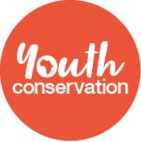OELO was created in 2010, when members of the Lac Oguemoué community chose to protect the resources of their lake for future generations. We began by launching an ecotourism site, Tsam Tsam, which creates jobs and generates income for the lakes, while providing financial support for OELO’s biodiversity conservation projects. Residents play a central role in decision-making, and we work to organise communities to protect biodiversity and ecosystem services.
OELO runs programmes in ecotourism, environmental education, sustainable fishing, reducing the illegal bushmeat trade and facilitating biodiversity research in the Bas Ogooué lakes region of Gabon. Today, OELO has extended its field of action, hence the name Organisation Ecologique des Lacs et de l’Ogooué, given the extension of its work to the communities of the surrounding lakes.
After the theoretical courses, the young people form clubs so that they can then move on to a practical phase where they carry out activities to solve the problems they identify in their schools and neighbourhoods. To solve various environmental problems, they raise awareness of the need to protect biodiversity and protected species, plant flowers to beautify their schools, clean up wetlands, create school gardens and collect rubbish to keep their schools clean. At the end of all these activities, 30 of the most motivated club leaders win a two-night trip to Tsam Tsam. Every year for the past eight years, the site has welcomed environmental leaders who reflect on and propose future projects to find solutions for protecting biodiversity.
On their return from the forest walk, they were given the task of drafting a future project to protect Gabon’s biodiversity. These projects included: research into forest biodiversity, the creation of environmental NGOs, the strengthening of environmental laws and law enforcement, the creation of environmental schools, the launch of an ecotourism project, the creation of fisheries management plans and the fight against corruption.
Every year since 2012, we have raised awareness among thousands of children in classroom sessions on protected species and mobilised hundreds of young people to lead environmental projects in Bas Ogooué. We train dozens of mentors and welcome thirty (30) student leaders to our annual environmental leadership camp at Tsam Tsam. Of the children who have taken part in our environmental education programme, 80% say that the experience has had an effect on their desire to consume protected species. Over the last decade, the children in our clubs were 76% less likely to eat illegal bushmeat than their fathers. Long-term monitoring carried out in the schools since 20213 has shown a considerable drop in reports of elephant hunting by members of the clubs and non-members of our programme (down 50%), and a reduction in the number of elephant hunters.
programme (down 50%) and elephant consumption (down 68%), as well as declines for other fully protected species.
Many thanks to all our partners, whose support has enabled our clubs to carry out a number of activities.

